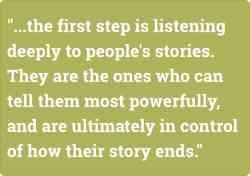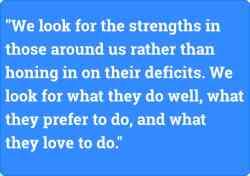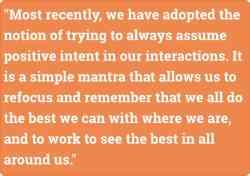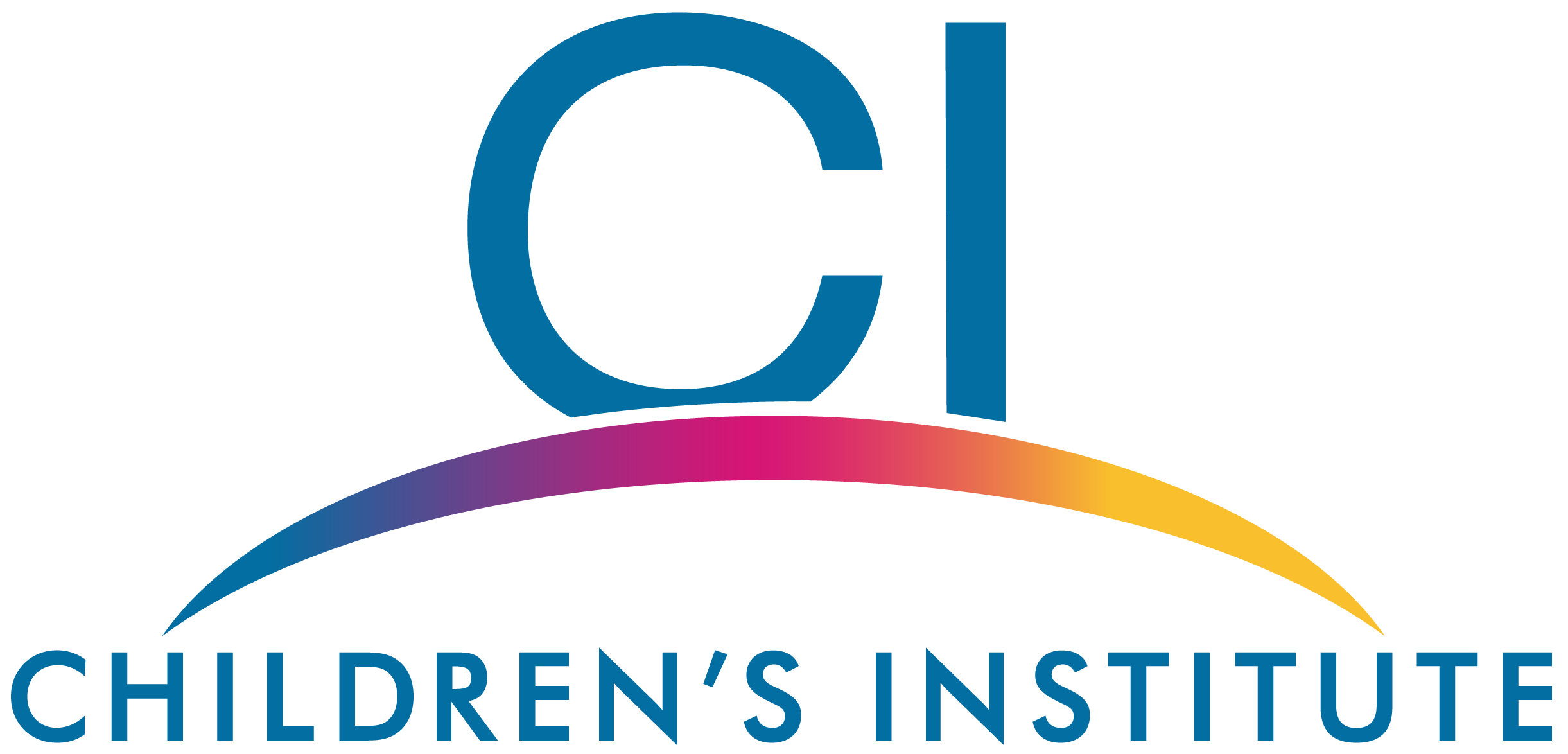Community Profile: Jennifer Perry - Program Manager for Reinvesting in Youth

How do social emotional skills play a part in the day-to-day functioning of your facility/program?
Building the social emotional skills of our youth is an essential part in what we do, from intake to discharge. Whether we complete formal assessments or engage in teachable moments via daily interactions, our goal is to support youth and families in increasing self-awareness, and empowering them to take control over their lives. A secondary goal, no less critical, is supporting staff in understanding their own needs and triggers so as a team we can provide better service to families by developing better understanding of ourselves and our communities.
Reinvesting in Youth (RIY) is a multi-agency collaborative that serves 11-17 year olds who are impacted by the juvenile justice system. We serve youth and their families throughout the juvenile justice continuum, from those engaging in truant behavior to those who have been formally adjudicated by the family court system.

Each youth/family is assigned a team of three providers who has expertise and experience in key social emotional skills development. EnCompass, for example, provides academic intervention services with a focus on supporting connections between the family and school setting. The Academic Liaison assesses fit between the child and the school placement, and works to empower youth to develop the skills for self-advocacy in the school setting. The second point of connection is what we refer to as an “anchor site.” These anchor sites, including Charles Settlement, Southwest Area Neighborhood Association, and Community Place of Greater Rochester, connect the youth to emergency services such as food and housing as well as sustaining, pro-social supports and activities such as youth groups and recreation opportunities. They also work collaboratively with the team around building developmental assets in the youth that we serve, which we formally measure. Finally, Hillside Children’s Center is responsible for the provision of formal case management services steeped in collaborative, family-driven care. Our work is enhanced through the use of the Adverse Childhood Experiences assessment (ACES) and the Developmental Assets Profile (DAP). We do this with the help of the Search Institutes SPARKS curriculum by building communication skills and advocacy for the family.
RIY functions as a collaborative and social emotional skills have been an essential part in how we do interact with one another. This collaborative requires our smaller teams of three, mentioned above, to be clear in their roles and excellent in their communication so that they can track all of the moving parts without overwhelming families. We have done extensive work as a team around knowing each other’s strengths and being able to fluidly identify how our strengths benefit our team as well as each youth’s plan of care. We work on the competencies associated with self-awareness, which are directly transferable to providing quality care. This is also true in terms of our agency partnerships: the overarching goal is to know each other’s strengths and empower each other to become stronger in our mission together.
What do you think are the most critical steps to ensuring the social and emotional growth of the youth you work with?
For RIY, Hillside, and all the agencies with which we partner, the first step is listening deeply to people’s stories. They are the ones who can tell them most powerfully and are ultimately in control of how their story ends. We are simply there as a resource and to reflect what we hear, share what we have, connect threads for reflection and empower their voices. Along this path we can present options that might help to identify unseen things, skills that might turn an area of challenge into a strength, and mirrors to reflect strengths and passions already present.
Concretely we do this in a number of ways. We hire staff reflective of the youth and families we serve to immediately remove a perceived barrier (this includes race, gender, language and background). Families have regularly reported their level of comfort is increased by knowing their provider is “from” their neighborhood. Secondly, we try to immediately address basic needs like food, clothing and shelter. Stabilizing these basic needs allows for work on social emotional issues, otherwise the drive to survive will overcome developmental growth. Finally, we look for the strengths in those around us rather than honing in on their deficits. We look for what do they do well, what they prefer to do, and what they love to do. From that place, one can build an array of social and emotional skills that immediately feel important, essential and empowering. We do this informally through availability and approach to conversation and we do it formally through assessments and skill building measures mentioned above.
How do you promote self-care with your staff, as well as your students?

This is such an important area to address as burn-out in our field is high. We try, at RIY, to live by example and that means prioritizing self-care for staff first. There are several ways we do this. First, the belief is that if we really are family driven, beyond youth care, we need to meet the needs of our own families. There are many ways we are flexible with each other to do this and because we have a team of three, for each family we serve, covering for each other in time of need is fairly easy. Since the families we work with also have varying schedules, it means there is some flexibility in how we meet our hours as well. Planning and communication support this.
Our full team, with all the agencies in the collaborative, meets bi-weekly. In our meetings, there is always a check-in followed by kudos for team members and then a segment on training. Our trainings cover a range of topics that address the social and emotional needs of those we work with. Our approach to this is to do the work with ourselves first to help us identify what it feels like, identify any parallel process issues and how it fits in to the core of what we do. Recently the whole team took the ACES and had a deep discussion around the impact it had on us and what that meant for how we would use and administer the tool. The conversation informed practice and implementation while empowering the team and hopefully, through that, our families. In the past we have done this with the topic of police interaction and negative experiences. This work has led us to work through our own individual perceptions and has allowed us to build an empowering experience for ourselves and our youth.
For our youth, specifically, we tailor a plan through identifying their SPARK (what they are passionate about) and trying to pair that with resources that make them feel cared for. This has included connecting some to a dance and music program, others to the YMCA (after a case manager driven skill group there) and most recently through a singing group. We also have partnered actively with our CANs to have youth groups at the anchor sites so that they can continue to go even after RIY discharge. Finally, we work hard with the whole family to build interactive communication skills and ways to listen to each other, as well as positive play. All of these become avenues for self-care that fit with what the family decides they need.
How do you beat the winter doldrums personally? What are suggestions you make to your staff?

Rochester is a rough place in the winter and I personally struggle with seasonal affective issues so I have a light box that is very helpful. I try to plan something for February/March that I can look forward to so I know I have a break. The warmer the better, but mostly I look for something different. Exercise is essential in keeping up our mood and most of the RIY staff tries to do that. I drink a lot of water and fluids to keep hydrated, and carve out one day to work at home. We also use the time, as a team, to go back to the fundamentals and remember what makes us strong. We increase systems of communication after the holiday rush and we make sure to address concerns early and share positives quickly. Most recently we have adopted the notion of trying to always assume positive intent in our interactions. It is a simple mantra that allows us to refocus and remember that we all do the best we can with where we are and to work to see the best in all around us.
*This interview has been edited for length
